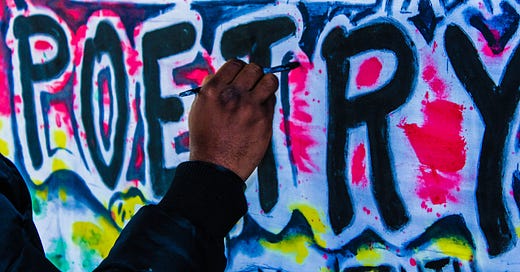Mátulain is not just a series focusing on my poetry—instead, it follows my continuing love story with the art.
It’s April, which means it’s National Poetry Month. Like I did last year, I’m following #Decolonize30for30 prompts for the entire four weeks. This April has me all hyped up! I haven’t done a poem-per-day challenge since December 2020.
What’s Decolonization?
When I first went through the #Decolonize30for30 prompts in 2020, I really didn’t know what I was getting into. Halfway through April 2020, I started reading up on decolonization—not just how it relates to Filipinos and Filipino Americans, but how it appears in other cultures, too—and found it to be a great foundation for my creative writing.
Merriam-Webster defines “decolonize” as simply “to free from colonial status.” To be introduced to this idea in my first year of living away from the motherland was particularly jarring, but it did help me adjust to American life in the end. In particular, it helped me understand that like Philippine land, where we settled was similarly colonized and stripped of its culture. I wrote about that realization a little bit in this poem.
In general, keeping the idea of decolonization in my head helps me to not be indoctrinated by the bombardment of “othering” that is prevalent here for POC. The idea that whiteness and white culture is what’s normal and ideal—I was falling into that trap before April 2020. Thank god for poetry!
How Has Writing Poetry Affected Me?
Last year, #Decolonize30for30 brought up some memories and painful moments of my Filipino side. This year, #Decolonize30for30 has me thinking about my American side.
For example: I have family here that I barely know. If I knew them better, would my transition from Filipino to Filipino-American have been smoother? Who knows?
How Can Prompts Help You Discover Parts of Yourself?
If you have some spare time this April, I do urge you to follow #Decolonize30for30’s prompts—posted by @babaylanstudies. You don’t have to write poetry or create anything following the prompts. They’re also great for meditation.
I find myself thinking about each prompt for maybe 30 minutes before I get to writing. It’s a great way to find out things about yourself that may be hidden behind more vibrant memories or easily accessible knowledge.
Thinking about prompts—especially ones that are part of a theme—can really help you get over creative blocks, too. And what you create, especially if it’s absolutely not something you had planned, can tell you a lot about yourself, too.
I find it difficult to write poetry if I don’t work from a prompt, unlike these newsletters that just seem to flow out of me. But my poetry shows everyone how important family and culture are to me—something I didn’t even know about myself, to begin with. I know that I love writing about my family, but I didn’t know how much they’re part of that well I draw from when I create.
Let me know if you decide to participate in #Decolonize30for30! I’m excited to see where it will take you.
Photo by Trust "Tru" Katsande on Unsplash
If you’ve enjoyed reading this or something else I’ve written, please consider buying me a coffee. ☕ Thank you!





